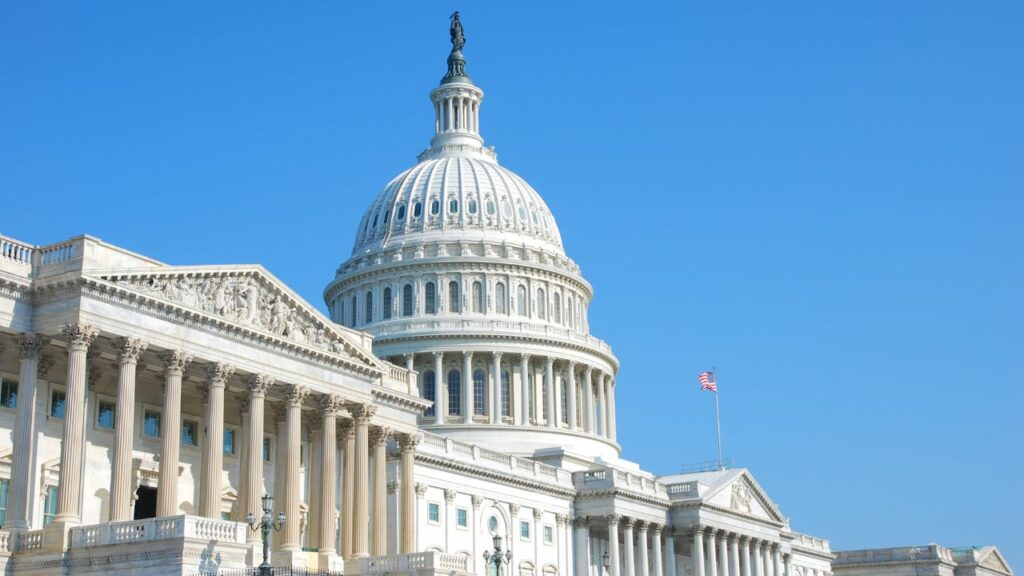As Congress allocates billions in military aid for foreign nations, the ongoing migration crisis continues to raise questions about the motivations behind American corporations shaping immigration policy. Amidst the chaos at the southern border and the influx of migrants, one must ask: who truly benefits from an open border policy? English comedian, actor, and activist Russell Brand talked about it in his recent video, so let’s explore what he had to say.
Profiting from Cheap Labor

While the focus often centers on the migrants themselves, it’s essential to examine who stands to gain from the availability of cheap labor. Could it be that some of the most prominent American corporations benefit from suppressing wage growth by flooding the market with readily available, low-cost labor?
The $95 Billion Question

Consider the recent $95 billion aid package approved by Congress, earmarked for countries like Ukraine, Israel, and Taiwan. While the bill passes with confidence, one wonders: who truly supports these measures? Were American taxpayers consulted on these decisions, or did powerful corporate interests steer the agenda?
Foreign Military Endeavors

The legislation allocates significant sums for foreign military endeavors, raising eyebrows as ordinary Americans foot the bill while struggling with economic uncertainties at home. Meanwhile, the crisis at the southern border persists, with hundreds of thousands of migrants flooding into the country. But who stands to gain from this ongoing influx of cheap labor?
The Corporate Recruitment Drive

Enter corporate giants like Tyson Foods, McDonald’s, PepsiCo, Walmart, and others, who actively recruit from the pool of migrants entering the country. As they tout their commitment to American values, they quietly replace American workers with immigrants willing to work for lower wages.
Hypocrisy in Action

Tyson Foods, for instance, made headlines for laying off 1,200 American workers in Iowa, only to announce 52,000 jobs for migrants. This pattern repeats across industries like agriculture, food services, construction, and janitorial work, where major corporations seek to blunt wage growth by increasing the availability of cheap labor.
Lobbying Efforts

Behind the scenes, powerful lobbying efforts shape immigration policy to serve corporate interests. Groups like the Business Roundtable and the US Chamber of Commerce push for policies that extend legal protections to undocumented migrants, ensuring a steady supply of low-wage workers.
Who Truly Benefits From This

While some may argue that increased immigration benefits the economy, it’s essential to scrutinize who truly benefits from these policies. As wages stagnate and economic disparities widen, it becomes clear that powerful corporate interests prioritize profits over the well-being of American workers.
Economic Motives

The narrative of compassion for migrants often masks the underlying economic motives driving immigration policy. While humanitarian concerns are undoubtedly valid, they must not overshadow the need to address the systemic exploitation of vulnerable workers and the erosion of wages for American workers.
Calculated Maneuvers?

In the end, as we witness the convergence of foreign policy decisions and immigration trends, it’s crucial to question whose interests are truly being served. Are we witnessing genuine acts of kindness and compassion, or are we witnessing the calculated maneuvers of corporate elites seeking to maximize profits at the expense of ordinary Americans?
Uncomfortable Truths

As the debate rages on, one thing remains clear: the plight of American workers must not be overlooked in the pursuit of corporate interests and political agendas. It’s time to confront the uncomfortable truths behind the rhetoric and demand accountability from those who shape our immigration policies.
Taxpayer Representation

What are your thoughts? How can we reconcile the narrative of compassion for migrants with the economic interests driving immigration policy? Are American taxpayers adequately represented in decisions regarding foreign aid and immigration policy, or are corporate interests dominating the conversation?
Powerful Lobbying Groups

What role do powerful lobbying groups play in shaping immigration laws, and how does this influence the treatment of migrant workers? Should corporations be held accountable for replacing American workers with cheaper immigrant labor, or is this simply a reflection of market forces?
Source: Russell Brand






















